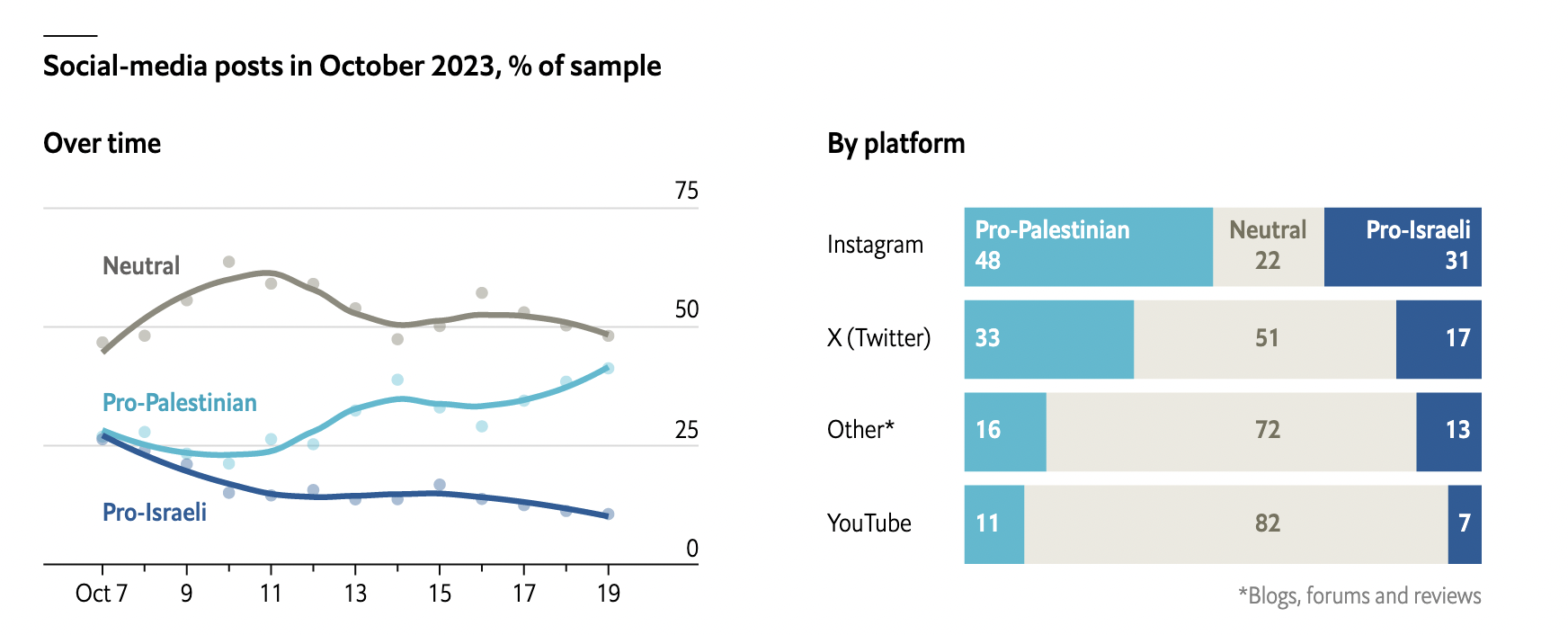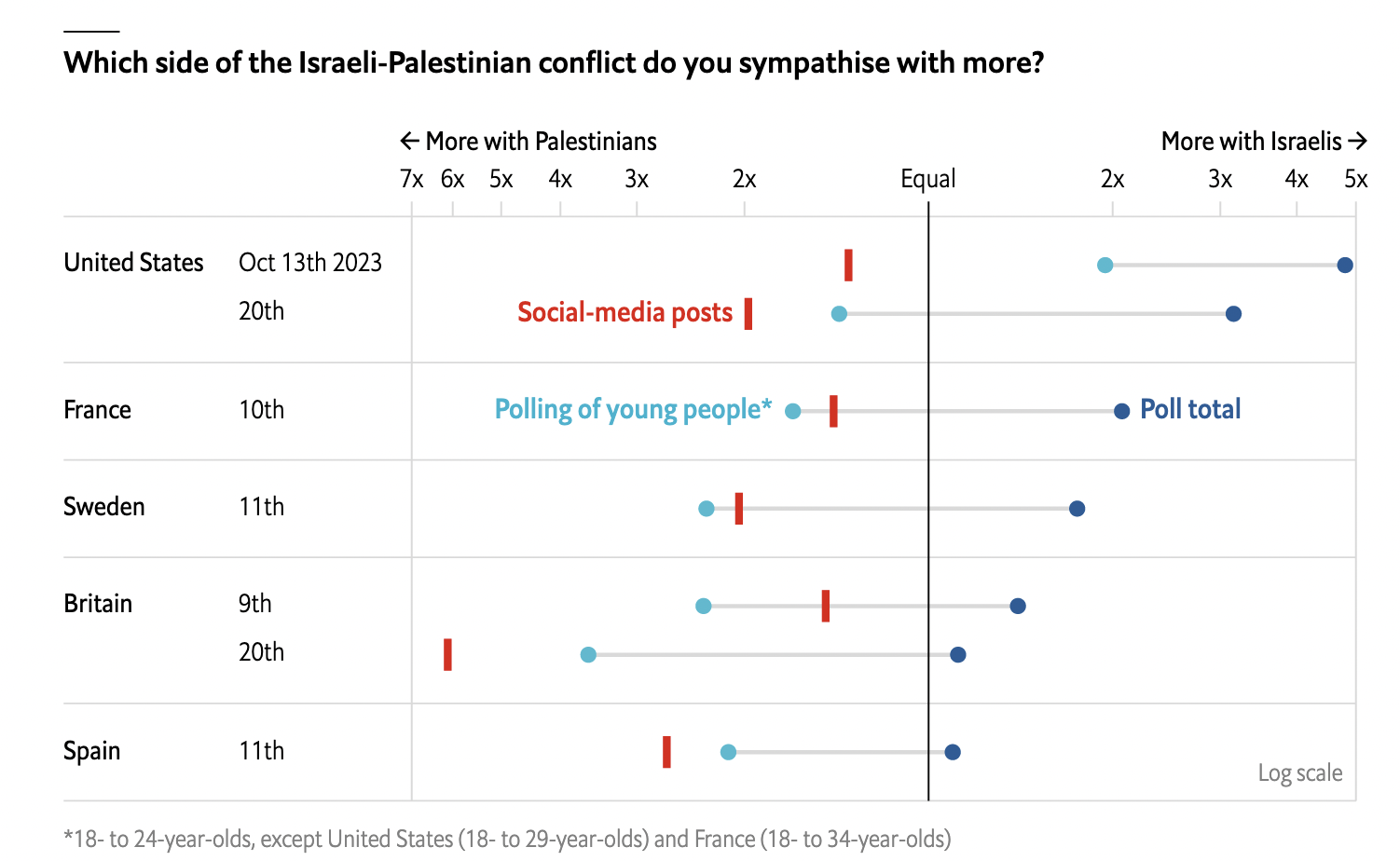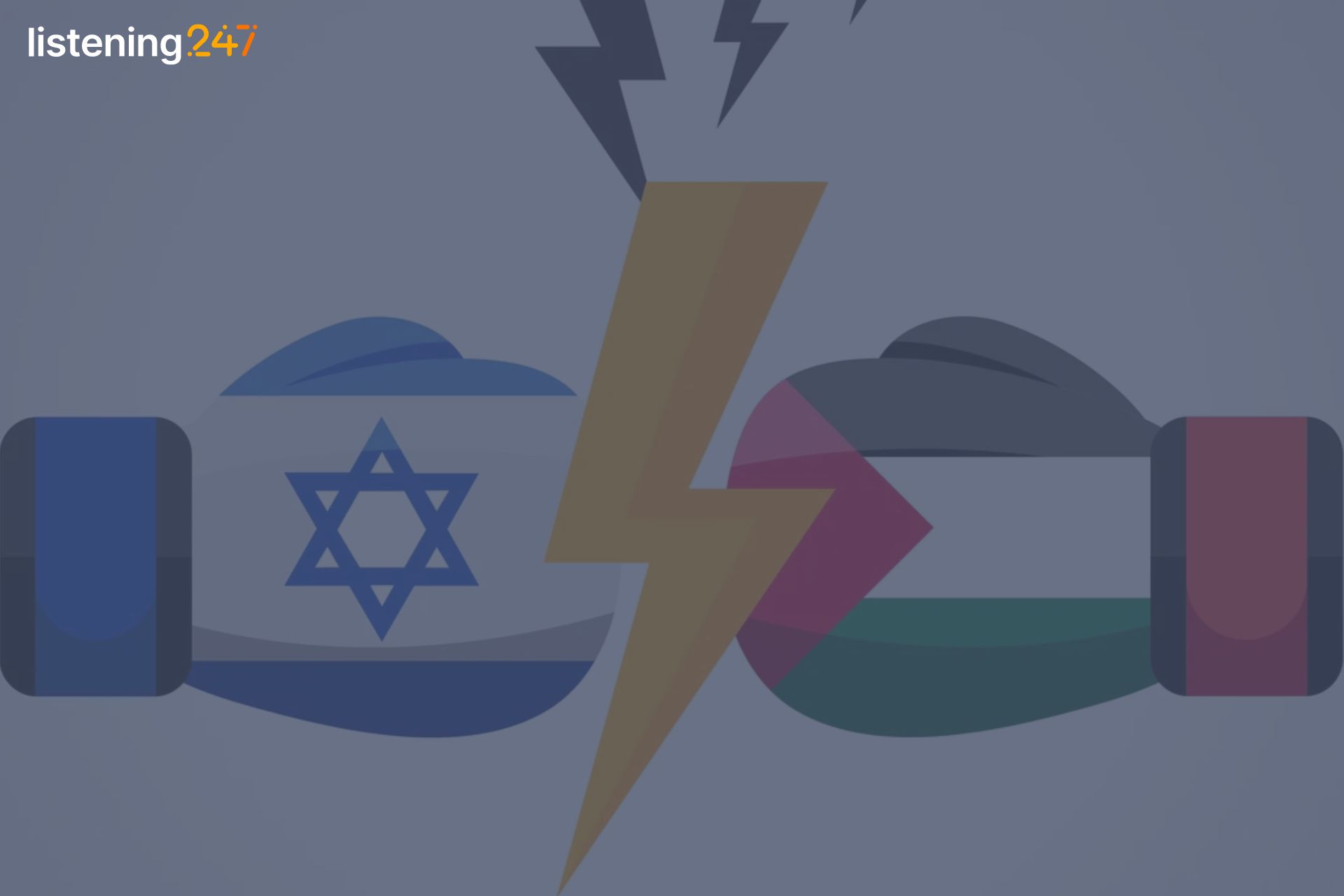
listening247 In the Press
The Economist: Popularity of Israel Vs Palestine on social media
Despite the strong pro-Palestinian sentiment seen on social media, properly weighted opinion polls indicate that support for Israel is more prevalent than online posts suggest. This contrast highlights the need to consider multiple sources when assessing public opinion on the conflict.

Fig 1. Social-media posts in October 2023, % of sample
Scrolling through a typical X (formerly Twitter) feed might give the impression that sympathy for Israel has waned since last month’s attacks, as pro-Palestinian voices dominate both the streets and social media. One user, for instance, wrote, “At first, I was angry at Hamas and Palestine for the attacks, but now after seeing more of what’s going on, I cannot support such a regime in Israel. #FreePalestine.”
But do these views reflect broader public opinion? At our request, listening247, an AI-technology firm, analyzed 1 million posts from Instagram, X, and YouTube between October 7th and 23rd. They used a machine-learning model to classify posts as pro-Israel, pro-Palestine, or neutral. Initially, support was evenly split, but by October 19th, pro-Palestinian posts were nearly four times more common than pro-Israeli ones.
However, Israel's online perception contrasts sharply with overall public opinion. A YouGov poll of Americans on October 20th found three supporters of Israel for every one backing Palestine, even though that day’s social media posts in the U.S. were predominantly pro-Palestinian. Similarly, in Britain, while YouGov found equal support for both sides, social media was overwhelmingly pro-Palestinian by a six-to-one margin.

Fig 2. Which side of the Israeli-Palestinian conflict do you sympathise with more?
One reason for this disparity is age. Social-media users tend to be younger, and this demographic is notably more pro-Palestinian. Additionally, listening247’s analysis did not include Facebook, a platform with an older user base that is likely more pro-Israel. Polls in Denmark, France, Spain, and Sweden show that Israel garners more overall sympathy, but younger participants' views align closely with social-media trends. However, in the U.S. and Britain, social-media sentiment is even more pro-Palestinian than among young poll respondents. Israel’s supporters appear less enthusiastic about engaging in online debates.
Conclusion
In summary, while social media reflects a strong pro-Palestinian sentiment, particularly among younger users, this does not fully align with broader public opinion, which tends to be more balanced or even pro-Israel. The divergence highlights the influence of platform demographics and the varying levels of online engagement among different age groups. This gap between social media perceptions and overall public sentiment underscores the complexity of gauging true public opinion in the digital age.
This article appeared in the International section of the print edition under the headline “The social skew”
Chart sources: listening247; YouGov; The Economist
Origal Source: The Economist
